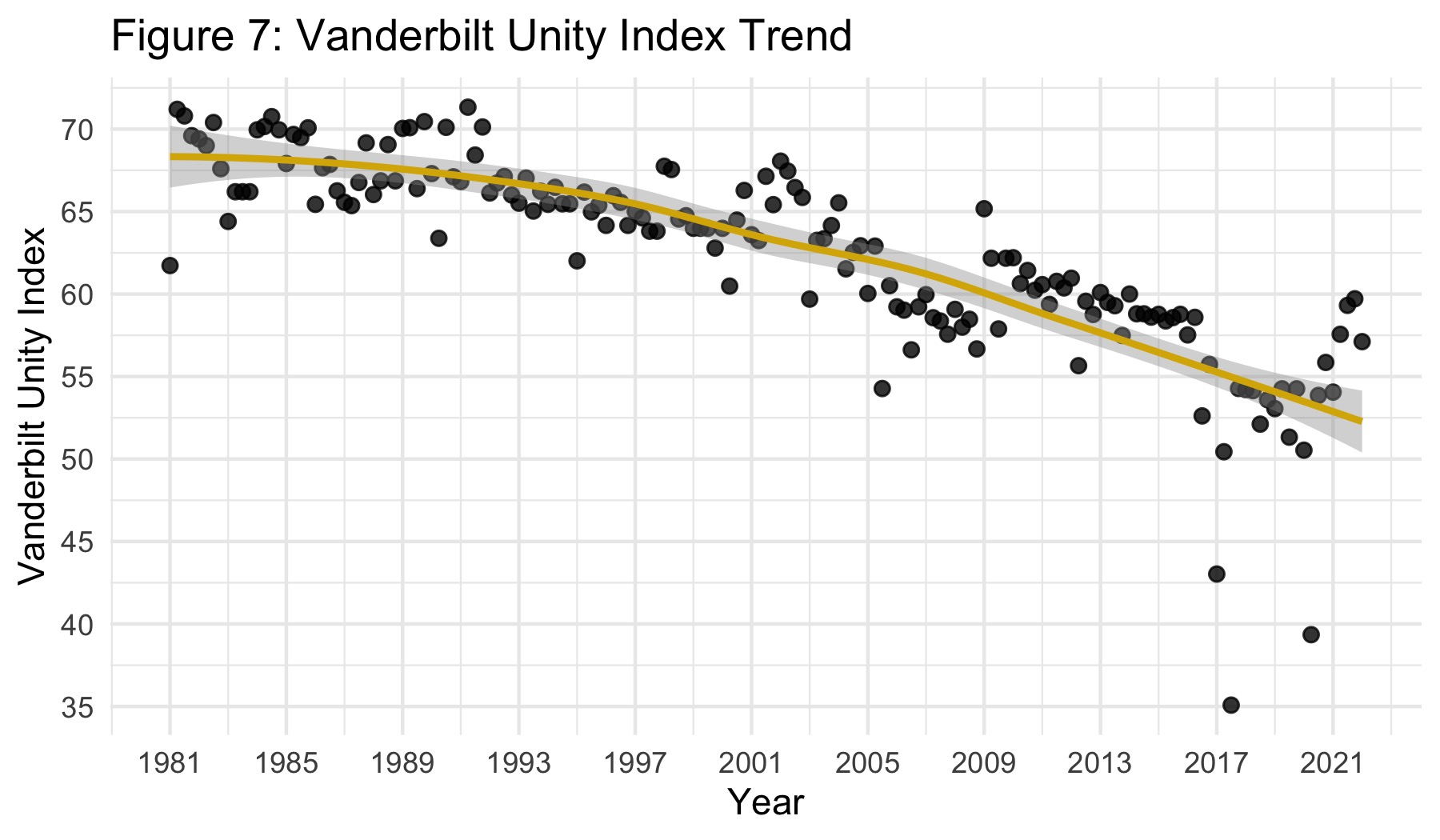The Vanderbilt Project on Unity and American Democracy is pleased to introduce the Vanderbilt Unity Index, an analytical representation of "unity," as we've been able to define it, tracked quarterly since 1981.
Vanderbilt News: Vanderbilt Unity Project launches "Unity Index" showing quarterly snapshot on Americans' faith and trust in democracy
Politics is always about managing conflict and disagreement, determining, as Harold Lasswell once said, "who gets what, when, and how." Abraham Lincoln was more pointed: "unanimity is impossible." With that in mind, the VUI seeks to measure fluctuations in Americans' general sense of faith and trust in their political institutions, not the reactions of the public to particular policies. As an aggregate of several different inputs, we believe the VUI can serve as an estimate of the country's faith in our shared political life.
Our goal is to measure unity so we can track how the country is doing, especially after the terrible events of January 6, 2021. We have created the VUI, which provides a quarterly snapshot of how unified Americans feel. Having a forty-year trend available to us helps provide important context to understanding the shifts in unity felt by the American public.
The VUI incorporates five inputs, including publicly available survey data on strong presidential disapproval, political and ideological extremism, social trust, political and social unrest, and measurements of Congressional polarization to provide a quarterly and replicable measurement of Americans' level of political consensus. Combining inputs like "strong" presidential approval and ideological identification, the VUI rescales the data to create a single score with a potential range of 0-100 (with 100 representing a most unified state) for each annual quarter from 1981 through the first quarter of 2021.
